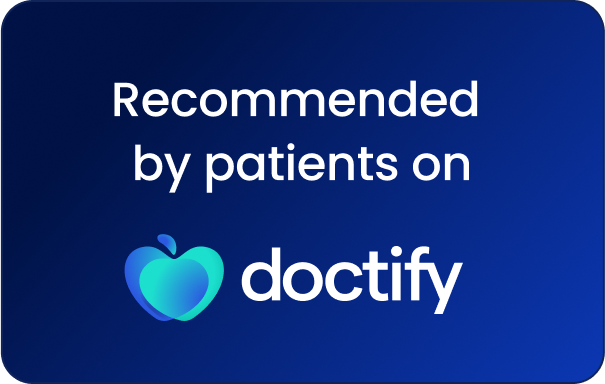Oesophageal cancer is a serious condition that affects the tube connecting your throat to your stomach. It’s important to understand what this type of cancer is and how it develops so you can recognise the signs and take action if needed. Oesophageal cancer starts in the cells lining the oesophagus. Over time, these cells can grow uncontrollably, forming a tumour which can make swallowing difficult and lead to other health issues. Knowing how oesophageal cancer progresses can help protect your health and wellbeing.
There are various factors that can increase the risk of developing oesophageal cancer. These include smoking, heavy alcohol use, a diet low in fruits and vegetables, and certain medical conditions like gastroesophageal reflux disease (GERD) and Barrett’s oesophagus. Understanding these risks can empower you to make lifestyle changes that might reduce your chances of developing this cancer. Early detection and prompt treatment are key to managing oesophageal cancer effectively. Learning more about this condition is an important step in protecting your future health.
By understanding oesophageal cancer and its risk factors, you can take steps to mitigate those risks and recognise symptoms early. This way, you can seek medical advice and receive the necessary treatments promptly.
Understanding Oesophageal Cancer: What It Is and How It Develops
Oesophageal cancer starts in the inner lining of the oesophagus, the tube that carries food from your throat to your stomach. The cells in this lining can sometimes change and grow uncontrollably. When this happens, a tumour forms. There are two main types of oesophageal cancer: squamous cell carcinoma and adenocarcinoma. Squamous cell carcinoma starts in the flat cells lining the oesophagus, while adenocarcinoma begins in the glandular cells that produce mucus and other fluids.
Several factors can influence the development of oesophageal cancer. Lifestyle habits like smoking and drinking alcohol heavily can damage the oesophageal lining, increasing the risk of cancer. Medical conditions such as GERD and Barrett’s oesophagus can also lead to changes in the oesophagus that may turn cancerous. Even dietary habits play a role; a diet low in fruits and vegetables may lack the nutrients needed to keep your cells healthy. By learning how these factors contribute to oesophageal cancer, you can better understand the importance of early detection and preventative measures.
Common Symptoms of Oesophageal Cancer You Should Recognise
Recognising the symptoms of oesophageal cancer early on can make a big difference in treatment success. One of the most common symptoms is difficulty swallowing, also known as dysphagia. This happens because the tumour can block the oesophagus, making it hard for food and liquids to pass through. At first, you might only have trouble swallowing solid foods, but as the tumour grows, even liquids can become hard to swallow.
Another symptom to watch for is unexplained weight loss. Because swallowing becomes difficult, you might eat less and start losing weight without trying. Other signs include chest pain or discomfort, particularly behind the breastbone, and a persistent cough or hoarseness. Some people might also experience heartburn or indigestion that doesn’t go away with usual treatments. Being aware of these symptoms allows you to seek medical help sooner, which can lead to an earlier diagnosis and a better outlook for treatment.
Diagnosing Oesophageal Cancer: What to Expect
Getting diagnosed early is crucial for successful treatment of oesophageal cancer. If you experience symptoms like difficulty swallowing or unexplained weight loss, a doctor may recommend several tests to determine if oesophageal cancer is present. One common test is an endoscopy. During this procedure, a thin tube with a camera on the end is passed down your throat. This allows the doctor to look inside your oesophagus and take tissue samples if any abnormal areas are seen.
Another important test is a barium swallow, where you drink a special liquid that shows up on X-rays. This helps highlight any abnormalities in your oesophagus. If cancer is suspected, a biopsy will be done. This involves taking a small sample of tissue from your oesophagus to be examined under a microscope. These tests are essential for confirming the presence of cancer and determining its stage, which will influence treatment options and outcomes.
Treatment Options for Oesophageal Cancer: Your Path to Recovery
Once diagnosed, there are various treatment options available to tackle oesophageal cancer, many of which are designed to remove or destroy the tumour and stop the cancer from spreading. The treatment plan will depend on the stage and location of the cancer, as well as your overall health. One common treatment is surgery, which aims to remove the tumour and some surrounding tissue. In some cases, part of the oesophagus may need to be removed and then reconnected to the stomach.
Other treatments include radiation therapy and chemotherapy. Radiation therapy uses high-energy beams to kill cancer cells, while chemotherapy involves using drugs to destroy cancer cells throughout the body. Some patients might receive a combination of these treatments. Emerging treatments like targeted therapy and immunotherapy, which focus on specific aspects of cancer cells or boost the body’s immune response, offer new hope for many patients. Each treatment option has its own benefits and risks, so it’s important to discuss these with your healthcare team to find the best approach for your situation.
Conclusion
Oesophageal cancer is a serious condition that requires prompt attention and treatment. By understanding how this cancer develops, recognising its symptoms, and knowing what to expect during diagnosis and treatment, you can take proactive steps to manage your health effectively. Knowledge is power when it comes to fighting cancer, and early detection coupled with the right treatment plan can significantly improve outcomes.
If you or a loved one is experiencing symptoms of oesophageal cancer, don’t hesitate to seek medical advice. Early intervention is key to successful treatment. For expert advice and cutting-edge treatment options, schedule a consultation with our gastric and oesophageal cancer specialist at Precision Upper GI Surgery. We’re here to provide the support and care you need on your journey to recovery. Contact us today.



